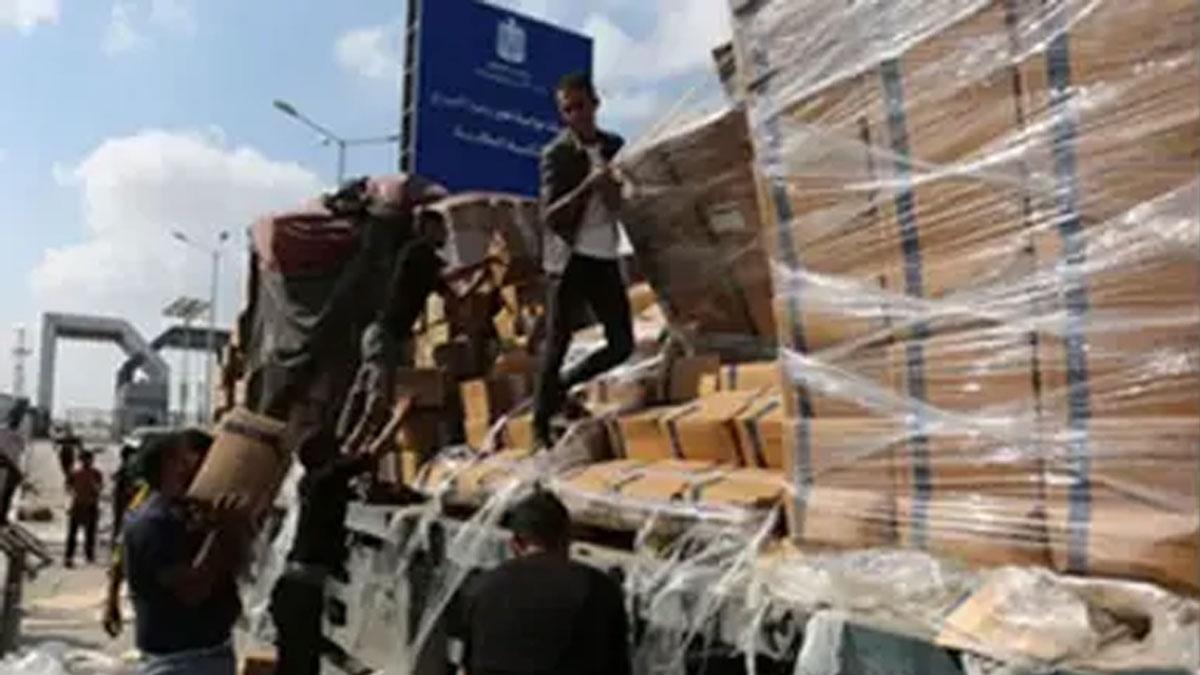The UN Office for the Coordination of Humanitarian Affairs (OCHA) reported a significant challenge in delivering crucial life-saving humanitarian aid to the northern region of Wadi Gaza, a coastal wetland situated in the heart of the besieged enclave. Approximately half of the Hamas-controlled enclave is located north of Wadi Gaza.
In the most recent update, OCHA highlighted the inability to provide humanitarian assistance, attributing it to "access delays and denials, as well as active conflict" in the area.
The aid package, as outlined by the UN body, included essential medicines intended to offer vital support to over 100,000 individuals for a period of 30 days. Additionally, eight trucks loaded with food were designated for those facing catastrophic and life-threatening food insecurity.
Humanitarian organizations urgently advocate for safe, sustained, and unhindered access to the northern areas of Wadi Gaza, which have been cut off from the south for over a month, according to OCHA's update.
On a positive note, the World Health Organization (WHO) revealed that 13 trucks transporting critical medical supplies, including items for surgeries and anesthesia, successfully reached Gaza through the Rafah crossing within the past three days. These medical provisions are slated for delivery to Nasser Medical Complex, Al Aqsa, Al Awda, and European Gaza hospitals in southern Gaza, benefiting approximately 142,000 patients.
Simultaneously, on Wednesday, a convoy of 105 trucks carrying food, medicine, and various supplies entered the Gaza Strip via Rafah and Kerem Shalom crossings.
However, the OCHA issued a warning about the escalating risk of famine in Gaza due to intense conflict and limited humanitarian access.
Since the outbreak of the Israel-Hamas war on October 7, 2023, the toll has been devastating, with at least 22,313 Palestinians killed, 57,296 injured, and up to 7,000 others reportedly missing. The Ministry of Health in Gaza estimates that about 70 per cent of the total fatalities are women and children.
By the close of 2023, the UN Refugee Agency estimates that 1.9 million people, nearly 85 per cent of Gaza's total population, were internally displaced. The situation underscores the urgent need for international intervention and increased humanitarian access to alleviate the suffering of the affected population.
(With Agency Inputs)


















